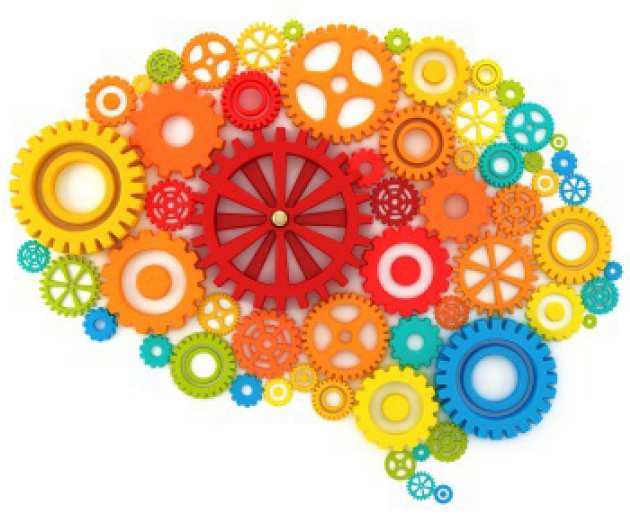Advances in Modern Psychology

The influence of experience and biology on the scientific study of human behaviour
Module details
- Offered to 2nd Years
- Mondays 16.00-18.00
- Planned delivery: On campus (South Kensington)
- Two-term module, worth 5 ECTS
- Available to eligible students as part of I-Explore
- Extra Credit, or Degree Credit where your department allows
This module will provide accessible, real-world insights from cognitive, biological, social, and clinical psychology to illustrate how recent developments in theory and data collection have changed some of the traditional ways of conceptualising the human mind and behaviour.
Ethical considerations, operationalisation of variables, and rigorous scientific research design are important aspects of the module. There will be an opportunity to conduct a psychological experiment and provide your own research proposal based on topics learnt in class.
Information blocks
Learning outcomes
On successful completion of this module, you will be better able to:
- Study theories of the mind and topics from a modern-day psychological perspective
- Critically compare in class discussions different approaches to studying real-world psychological phenomena
- Access and select primary sources appropriate to at least two key areas in psychology
- Apply key concepts, research, statistical analysis and feedback
- Develop critical thinking and analytical skills, written and communication skills and time-management
Indicative core content
- Designing research in psychology: A brief overview of research methods in psychology covering a number of research paradigms, including both quantitative and qualitative methods of data collection, followed by a discussion of the pros and cons of these methods.
- Social psychology online: How do people behave online, and why? The lecture introduces issues pertaining to social media use, such as deindividuation and the issue of anonymity. Ways of tackling and overcoming these relatively old concepts in new and effective ways will be discussed.
- Recent developments in cognitive psychology: An exploration of modern techniques and research in cognitive psychology. Recent findings from cognitive psychology have changed our understanding of how people think.
- Neuropsychology and brain disorders: Recent findings about brain disorders such as prosopagnosia, and a look at what these can teach us about the brain and our behaviour.
- Psychology of love and attraction: A look at love and interpersonal attraction. The session covers some assumptions that are associated with differing levels of attractiveness. The session also covers what makes people fall in love and what the psychological literature suggests may contribute to lasting relationships.
- The acquisition of language: An overview of language and its main functions. You will learn about the variety of brain structures involved in language. The most researched brain areas are Broca’s area and the Wernicke's area.
- Artificial Intelligence (AI): An introduction to the field of AI and machine learning including recent developments in the field. Conscious systems and robots, whether robots can be conscious and the ethical implications of this possibility.
- Criminal psychology: A psychological understanding of criminal behaviour. A look at the psychology of crime, the behaviours and thoughts of those who commit crime, and the treatment of criminals.
- Mental health disorders (several sessions): These sessions will include introduce a number of mental health disorders (depression, bipolar disorder, schizophrenia, anorexia, bulimia, borderline personality disorder, obsessive-compulsive disorder) and consider recent research developments in theory and clinical practice
- The stigmatisation of mental illness: The impact stigma has on individuals with mental health problems and the portrayal of mental illness in the media. Ways to support those with mental health disorders and develop a more accepting and nurturing society will be considered.
- Life span development: the psychology of life span development. This will include studies on individual life cycle, developmental issues and ageing.
- Mindfulness and psychology of wellbeing: This session introduces the empirical concept of mindfulness, as well attempting a mindfulness technique in class.
- Willpower: Includes discussion of modern-day research on willpower and discipline, application in everyday life, as well as focus on empirically derived tools to increase own willpower.
- Cultural neuroscience: does the psychology of your culture of origin affect your brain? You will learn about research into the bidirectional relationship between the brain and a person’s environment. We will look at how methods used in neuroscience that were previously described in earlier classes such as neuroimaging, show the different uses of the brain according to a person’s culture.
Learning and teaching approach
The sessions will be delivered via a variety of teaching methods, including lecture sections delivered by the module lead, group discussions about set topics, combined with training sessions which relate to the assessments, such as on report- and essay-writing, data collection and contributing productively to debate. Additionally, you will have the opportunity to conduct a psychology lab experiment, take part in mini-quizzes and psychometrics typically used by psychologists. These will be supplemented by in class discussions with your peers on your weekly learning of preparatory tasks.
Assessment
- Coursework: Two online multiple choice exercises - one hour per term (40%)
- Coursework: Research proposal (up to 2000 words) with class presentation (40%)
- Coursework: Weekly reflective journal - 20 entries of no more than 150 words per entry (20%)
Key information
- Requirements: You are expected to attend all classes and undertake approximately 85 hours of independent study in total during the module. Independent study includes reading and preparation for classes, researching and writing coursework assignments and preparing for other assessments.
- This module is designed as an undergraduate Level 5 module. For an explanation of levels, view the Imperial Horizons Level Descriptors page.
"Great module, well taught, had some good sessions and some mind-blowing ones."
"Really loved it. I would recommend it to anyone who likes psychology."


